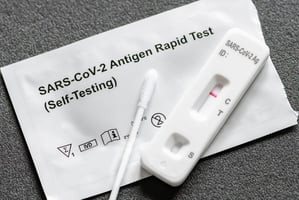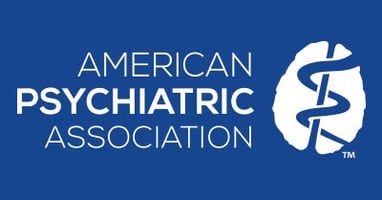Individuals with psychotic disorders who were hospitalized for COVID-19 in Iran had lower survival...
APA Calls for Emergency Funding as COVID-19 Overwhelms Behavioral Health System
 |
The funding under consideration is primarily focused on shoring up existing programs—especially the Small Business Administration (SBA) Paycheck Protection Program, which ran out of money last week. Congressional Democrats are hoping to add funding for hospitals, state governments, and a nationwide testing program for COVID-19. The bill is expected to be approved by Congress this week.
APA and the other groups are hoping to alert Congress to the dire need for funding for mental and substance use treatment programs. “Before the pandemic broke out, there was bipartisan consensus that addressing mental health, substance use, and suicide were urgent national priorities. Congress took preliminary steps to increase funding for mental health and addiction services, but these investments may soon be lost because of the financial strain COVID-19 has taken on our mental health and addiction system,” the coalition stated.
Citing a survey conducted by the National Council for Behavioral Health, the coalition noted that many behavioral health organizations “don’t have the funds they need to ride out this crisis.” The survey of 880 behavioral health organizations across the country revealed that 62% believe they can survive financially for only three months or less under current conditions. “Organizations have cancelled, rescheduled, or turned away 31% of patients, and 92% have reduced their operations,” they wrote.
The statement noted that the CARES Act included funding to health care professionals, with a priority on paying hospitals through Medicare. However, community behavioral health organizations rely primarily on Medicaid and have largely been left out of critical emergency funding. “We urge Congress to dedicate significant resources specifically to supporting community behavioral health programs during the crisis,” the coalition stated. The coalition also called for $1 billion each to the SAMHSA Community Mental Health Services block grant and the Substance Abuse Prevention and Treatment block grant programs.
“Our nation’s behavioral health system is crumbling because of COVID-19 at a time when we should be strengthening it to help those in need when the pandemic ends,” said APA President Bruce Schwartz, M.D.
APA CEO and Medical Director Saul Levin, M.D., M.P.A., agreed. “It is hoped that Congress and the Trump administration will support what is expected to be an increased need for services for those with mental and substance use disorders as well as the general population in the wake of COVID-19.”
APA Members Invited to Join AHA Webinar to Focus on Lessons Learned Regarding Behavioral Health Services During COVID-19 Pandemic
Wednesday, April 22, 2-3 p.m. ETSenior leaders from Baltimore’s Sheppard Pratt Health System, including President and CEO and AHA Trustee Harsh Trivedi, M.D., will discuss how they re-engineered care processes, developed new care protocols for agitated patients, and created a virtual emergency department assessment to decrease the number of psychiatric patients in the ED during the COVID-19 surge. Sheppard Pratt also will discuss its efforts to support staff and build resilience during the crisis. Register for the webinar here.





